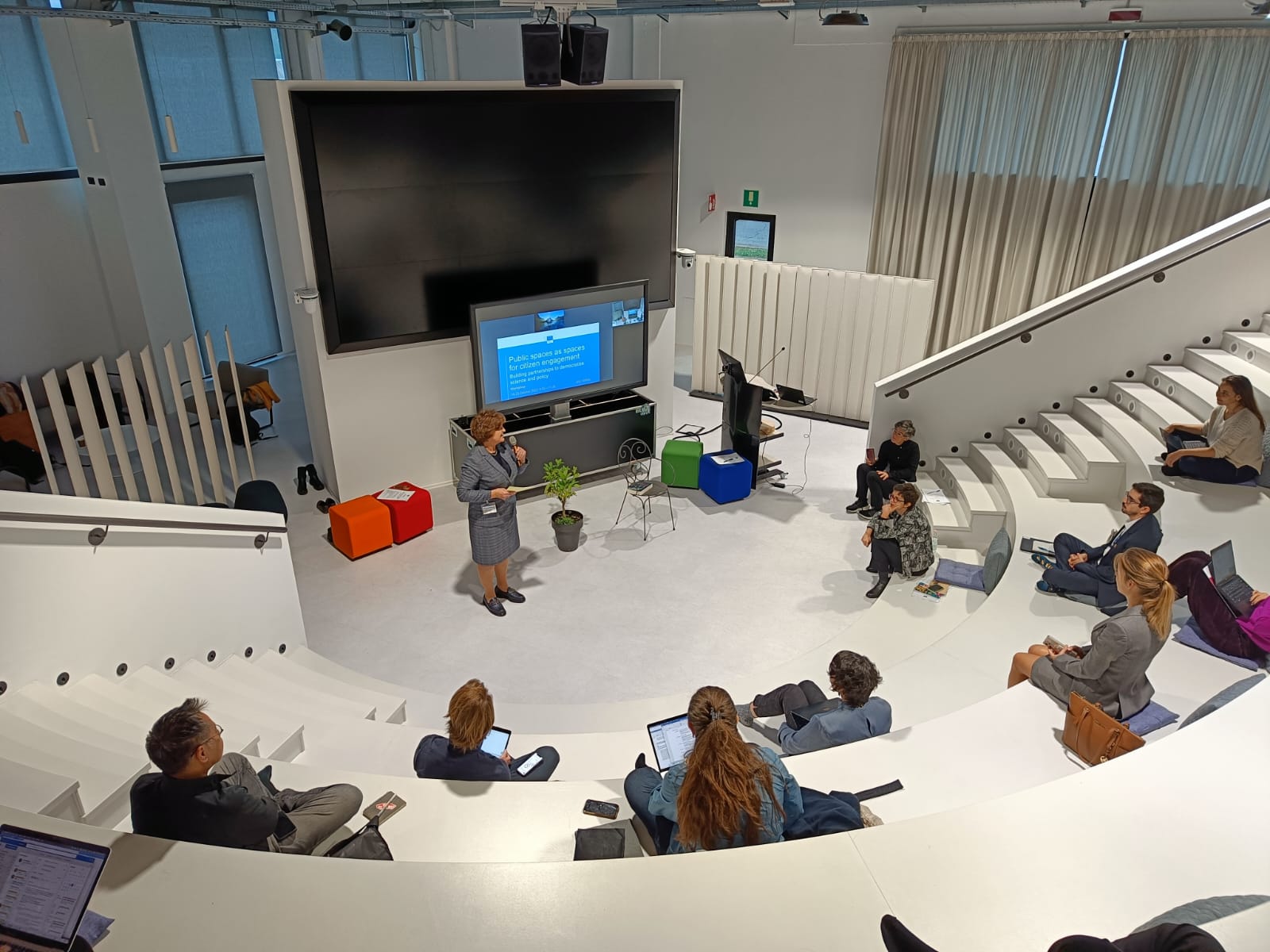Democracy 'as it happens': citizen participation in public spaces. Ongoing JRC research project
This research work builds on previous pilots that looked at ‘places where people go’ such as public libraries and expands it through a scientific lens.
Started in December 2022, the research project aims to explore and develop a more prominent political and democratic perspective on the topic of public spaces, within the Commission’s policy discourse. We equally aim to add a spatial perspective to the understanding of democracy and specifically, public participation. If we think about it, as many have been arguing, democracy, social and political life happen somewhere. However, concerns about shrinking public spaces as well as civic spaces, are mounting in Europe and elsewhere (see, for example, the work of OECD Observatory on Civic Space).
This research endeavor moves from this concern and aims to consolidate existing knowledge on the topic, by including different geographical, spatial, political perspectives brought by 11 experts’ contribution and the JRC own research (e.g., narrative analysis of Commission’s policies on public spaces and related policy areas). The basis for the expert contributions are specific case studies of everyday democracy in public spaces, e.g., museums, parks, theatres, digital spaces as well as other emerging public spaces, which are critically explored from the perspective of how and to what extent they can play an active role in counteracting current democratic deficits and enabling participation in public life. Building on the empirical study of these spaces, the research explores the relevance of public spaces for the understanding of plausible futures of democracy.
Besides the ‘what’ and the ‘how’ of this qualitative and case-based research, it is important to share the “why”: why are we looking at public spaces?
To look at democratic participation from a public space perspective allows us to ground our inquiry into something very concrete: a side-walk, a street, a community space, a neighborhood. This enables:
-
To look at different forms of participation in public life, more invented (rather than invited, following Miraftab, 2004) and less orchestrated. This allows us to explore, through the different case-studies, issues of inclusiveness (what does it mean, really, to include so called disadvantaged groups in our societies? And to go beyond the usual suspects?), political subjectivity (how do we become political subjects that are actually able to voice concerns?) and relevance of invited processes (how to make institutional processes of participation e.g., Citizens Assembly, meaningful and embedded within a context, along the line of what Bussu et al., 2022, argue?)
-
To account for the role of public institutions within such ‘invented’ processes (do they have a role? how can they learn from what is out there) as well as to understand the relationship between such processes and social/political change (when can they lead to new political and institutional courses?)
-
To explore ‘public spaces’ as being not only key knots for enabling political life, but also for social life. We refer to the concept of ‘social infrastructure’, developed by the sociologist Erik Klinenberg (see, for example, here), which is not a term conventionally used to describe the underpinnings of social life. Social infrastructure, or public spaces, are spaces where people come together, supporting different kinds of social connection and social interactions. Similarly to physical infrastructures, also social infrastructures need maintainance.
All of these topics were discussed, at length, during a two-days workshop held in Ispra on October 20-21, 2023. The workshop addressed, through the different case-studies brought by the participants and group work, issues of inclusiveness, ownership, human rights and how public spaces are enhanced or hindered as 'democracy infrastructure' by their use and their governance.
The workshop also hosted a theatre performance by Stefano Beghi (theatre director of Karakorum theatre) called “Performing democracy”, with at its core questions on the role of theatre in contemporary political and social life. Conversations and exchanges have been very enriching and useful to better define the ‘spirit of the project’, and shape the direction of the research project.
Outputs of this research work include a Science-for-Policy report (to be published by Summer 2025) and an edited book with Routledge (to be published by the end of 2025).
The privacy statement regulating treatment of personal data, as far as JRC's research activities within this research project is concerned, is available here.
If you are interested to be updated, write us at EU-CITIZEN-ENGAGEMENT@ec.europa.eu

